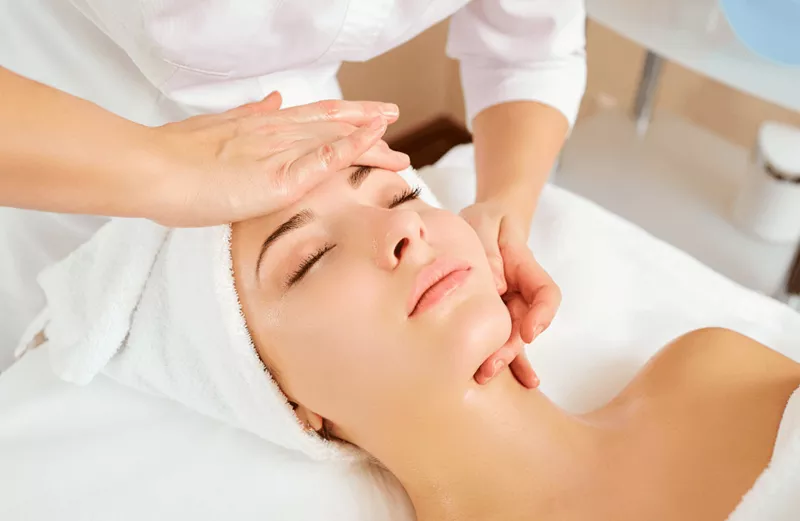Acne and dark spots affect more than just your skin
For millions of people around the world, acne is more than a temporary skin concern—it’s a persistent, emotionally taxing condition that affects self-esteem and overall confidence. From teenage breakouts to adult acne, this common skin disorder leaves not only blemishes but often post-inflammatory hyperpigmentation, better known as dark spots. These marks can linger long after active acne has subsided, serving as unwelcome reminders of a skin issue many try desperately to manage.
While there are countless pharmaceutical treatments available—from prescription creams to antibiotics—many individuals seek gentler, more holistic approaches. Natural remedies are gaining popularity because they are often milder on the skin, free of harsh chemicals, and come with fewer side effects. When used consistently and correctly, these natural treatments can provide meaningful improvement in both active acne and post-acne marks. This article explores four effective natural remedies that support clearer, brighter skin over time, offering not just temporary relief but potential long-term benefits.
Tea tree oil can target acne-causing bacteria naturally
Tea tree oil, extracted from the leaves of the Melaleuca alternifolia plant, is widely regarded as one of the most potent natural remedies for acne. Its secret lies in its powerful antimicrobial and anti-inflammatory properties. Tea tree oil can penetrate the skin and reduce the number of acne-causing bacteria while soothing the inflammation that contributes to redness and swelling. Unlike some synthetic treatments that cause excessive dryness or peeling, tea tree oil works more gently when diluted properly.
To use tea tree oil safely, it should always be mixed with a carrier oil such as jojoba or almond oil. Applying this mixture to affected areas with a cotton swab once or twice a day can help reduce the severity and frequency of breakouts. Over time, consistent use can lead to fewer blemishes and less irritation. It is important to patch-test tea tree oil before applying it to the face, as some individuals may experience sensitivity. When used correctly, however, it offers a natural and effective way to keep acne under control without resorting to harsh chemicals.
Aloe vera helps soothe skin and fade dark spots gently
Aloe vera is well-known for its cooling, soothing qualities, but its benefits for acne and post-acne pigmentation are often underrated. The gel from this succulent plant contains enzymes, vitamins, and amino acids that support skin regeneration. It reduces inflammation, speeds up healing, and promotes collagen production. For individuals suffering from both breakouts and dark spots, aloe vera serves a dual purpose: calming active blemishes and encouraging the fading of discoloration over time.
Fresh aloe vera gel, directly extracted from the plant’s leaf, provides the highest concentration of active compounds. Applied daily to clean skin, it can act as both a moisturizer and a treatment. It’s light, non-comedogenic, and suitable for sensitive skin types. Over several weeks, regular use of aloe vera can help soften the appearance of dark spots while minimizing new pimples. Its gentle action makes it an ideal long-term solution for those who wish to treat their skin with care, rather than subject it to aggressive formulations that may cause further damage.
Apple cider vinegar balances skin pH and reduces scars
Apple cider vinegar (ACV) is another popular natural treatment that has made its way into many skincare routines for good reason. Its astringent nature helps remove excess oil, tighten pores, and restore the skin’s natural pH balance—factors that play an essential role in preventing acne. ACV also contains acetic acid and other organic acids that have mild exfoliating effects, encouraging the shedding of dead skin cells that can clog pores and contribute to scarring.
When diluted with water, apple cider vinegar can be used as a toner after cleansing. A typical ratio is one part vinegar to three parts water, though this can be adjusted based on skin sensitivity. It’s best applied using a cotton pad or spray bottle. Over time, the exfoliating and antibacterial properties of ACV can help lighten dark spots and prevent future breakouts. However, due to its acidity, it must be used with caution. Always avoid applying undiluted ACV directly to the skin, and limit usage to a few times per week to avoid irritation. When incorporated thoughtfully into your routine, ACV can contribute to a smoother, more even complexion.
Green tea supports healing and reduces inflammation from within
Green tea is widely consumed for its internal health benefits, but its topical and dietary effects on the skin are equally impressive. Rich in polyphenols and antioxidants—particularly epigallocatechin gallate (EGCG)—green tea combats the free radicals that contribute to inflammation, clogged pores, and skin aging. Drinking green tea regularly helps detoxify the body and reduce sebum production, which plays a direct role in preventing acne formation.
Topically, green tea can be used as a gentle toner or incorporated into DIY face masks. Brewed and cooled green tea can be applied to the skin with a cotton pad, offering a refreshing, anti-inflammatory boost. Some people even refrigerate their tea bags and use them as eye or facial compresses to reduce puffiness and calm the skin. Over time, both drinking and applying green tea can help reduce redness, improve healing, and lighten hyperpigmented areas. Because of its mild nature, green tea is a suitable remedy for all skin types, and when used consistently, it can be a reliable companion in the fight against acne and discoloration.
Natural treatments work best with patience and consistency
Unlike pharmaceutical treatments that promise fast results, natural remedies work slowly and require dedication. Tea tree oil, aloe vera, apple cider vinegar, and green tea each offer unique benefits that contribute to clearer skin and reduced pigmentation, but none of them are magic bullets. The effectiveness of these treatments depends largely on consistency, correct usage, and skin type compatibility. Patience is critical, as visible changes may take several weeks or even months.
It’s also important to consider your overall skincare routine. Harsh cleansers, over-exfoliation, or incompatible products can interfere with the benefits of natural remedies. Stick to a gentle, well-balanced regimen and avoid trying too many treatments at once. Observing how your skin responds and adjusting accordingly is part of the process. When these natural solutions are integrated thoughtfully and patiently into your lifestyle, they can help you achieve not just clearer skin but a healthier, more balanced approach to skincare.
Combining remedies increases effectiveness without added harm
One of the advantages of natural treatments is their compatibility with one another. For example, using aloe vera as a daily moisturizer after applying a diluted tea tree oil treatment can help hydrate and soothe skin. Green tea can be consumed daily while also being used externally as a toner or mask ingredient. Apple cider vinegar, used sparingly, can be alternated with green tea for added exfoliating and antibacterial benefits.
However, it’s still important to introduce new remedies gradually. Even natural ingredients can cause irritation if overused or improperly combined. Start with one treatment and allow your skin time to adjust before adding another. Keep your skin moisturized and protected from the sun, especially when using acidic or exfoliating agents like ACV. A sunscreen with at least SPF 30 should be a daily essential, as sun exposure can worsen dark spots and slow healing. When used mindfully together, these remedies can form a synergistic skincare routine that promotes long-term improvement.
Holistic care is essential for long-lasting skin health
Clear skin is not just about what you put on your face—it’s also about how you care for your body as a whole. Stress, poor diet, hormonal imbalances, and lack of sleep can all contribute to persistent acne and slow the fading of dark spots. Incorporating natural remedies into your skincare regimen should go hand-in-hand with adopting healthy lifestyle habits. Eating a diet rich in fruits, vegetables, and omega-3 fatty acids can support skin health from the inside out.
Drinking enough water, managing stress through activities like yoga or meditation, and getting sufficient rest each night also play key roles in the skin’s natural healing processes. Regular exercise increases circulation and supports detoxification, both of which contribute to a clearer complexion. By combining topical remedies with holistic health practices, you create a supportive environment in which your skin can thrive. Over time, this balanced approach can lead to lasting improvements that go beyond cosmetic appearance to reflect true skin wellness.
Related Topics



































